Let’s just establish up front: Shouwa Genroku Rakugo Shinjuu is out there where the buses don’t run. You voted it your best series of 2016 and while it missed that by a hair in my personal rankings, I have no issues with your choice. This series is crazy good – we’re dealing with layers of character drama that run rings around anything else airing right now, anime or otherwise. As bad as the rest of the schedule is, when Shouwa Genroku is on, for 23 minutes you really feel like you’re lucky to be an anime fan in this time and place.
This is one of those anime episodes that makes me feel like just giving up, because it doesn’t require anything from me that it didn’t already do better itself. But here we are, so even if I can do is gush about how incredibly deep and subtle the character drama in this show is, that’s what I’ll do. As was the first season this one is fundamentally the story of three people, with a fourth vital character on the fringe, influencing events (then it was Master Yuurakutei; now it’s Higuchi-sensei). The one who ties both series together is Yakumo, of course – but he’s only one player on this stage.
In a very real sense “Sukeroku Futatabi-hen” is Yotarou’s story – in purely narrative terms, he more than anyone is at the center of it. But he’s also been an outsider in his own drama – a husband to a wife who doesn’t love him romantically, a father to a son who isn’t his, a shin’uchi without a rakugo voice of his own, a Sukeroku who his master sees as a shadow of the “real” one in his mind’s eye. A lesser man might be bitter and resentful about all that, but Yotarou is so relentlessly forward-driven and self-effacing that he appears not at all fazed by such things. He seems, as Yakumo says, to have “no ego” – but as that wise old owl also says, that can be as much of a problem for a man as having too much of one (which was the lot of Yotarou’s rakugo namesake).
As we join Yotarou this week, he’s practicing on a boat during a major Edo festival as Hii-sensei listens on and goads him to be more introspective. This is a revealing moment about the nature of Yotarou’s talent: he has a “great ear” in that he can recite anything back he hears (even Yakumo once praised him for it). But this is a blessing and a curse, for a great ear unchained to ambition and creativity only makes a performer a great mimic, not an artist. Yotarou reads the words of the characters he voices, and seems on some visceral level to grasp their feelings – it’s for love of these characters that he performs, after all (like a rakugo Wakamiya Shinobu). But he doesn’t try to understand the meaning behind the words he’s saying. As a rakugo performer, this leaves Yotarou something of a hollow man.
The resolve Yotarou shows when he follows Konatsu to the restaurant (and more) at which she works (she’s on maternity leave) is something we rarely see from him. This, too, is revealing – about Yotarou’s past, and about Konatsu’s son (he too shares a name with the father she loved – “Shin-chan”). This was Yotarou confronting his past once and for all by confronting the big boss of the local Yakuza, the one before whom he’d cowered ten years earlier before taking the fall for his own boss and going to jail. During that incarceration Yo-chan’s father died, and regret has followed him everywhere since. Complicating things is that the boss (a friend of sorts of Yakumo) is also apparently the baby’s father.
It’s the miracle of Yotarou’s nature than he can go on a rant and confront a man who has the power to snuff him out at a moment’s notice, and to do it in a completely self-deprecating way. Yotarou makes no claims of being Konatsu’s true love or her son’s true father – he simply declares that he’s sticking around anyway, and no one – not even this powerful and dangerous man – will intrude on that. Yotarou seems to feel no stress when he’s belittled or attacked – only when he feels he’s letting down those around him. That kind of attitude is admirable in its way, but it’s holding Yotarou back as an artist and a man – and no one knows this better than Yakumo.
What happens when Yotarou returns home, matsuri goldfish in-hand, is one of the truly remarkable scenes in this remarkable series. Clearly emboldened by his confrontation with the Yakuza boss (yes Yo-chan, people do rant mostly because it feels good), he presses Yakumo to partake in a “family performance”. The master agrees, but only if Yotarou learns “Inokori Saheiji” – an old and difficult rakugo that Yakumo says is “a good one for showing who you are. The Saheiji character is ideal for drawing out a man’s ego.” The only problem? There’s no one to teach it, as no one has performed it since the second Sukeroku, and he’s long gone.
It’s always special when Ishida Akira slips into character for a rakugo performance, but this is exceptional because he’s slipping into the skin of Sukeroku. It’s a remarkable performance both for character and seiyuu, and the old master (it applies to both) takes on Sukeroku’s mien despite not having performed the play himself in what surely must be decades. This is a true genius, a man with his own voice who retains the ability to transform himself utterly. The toll it takes on Yakumo both physically and emotionally is obvious in the aftermath, but in the moment his performance seems effortless. It’s here that we see the vexing paradox of rakugo, the need to express something personal while being chained to the weight of its history. The weight of the past is felt by everyone in Shouwa Genroku Rakugo Shinjuu, and it’s in how they bear up under it that the rest of the story will be decided.


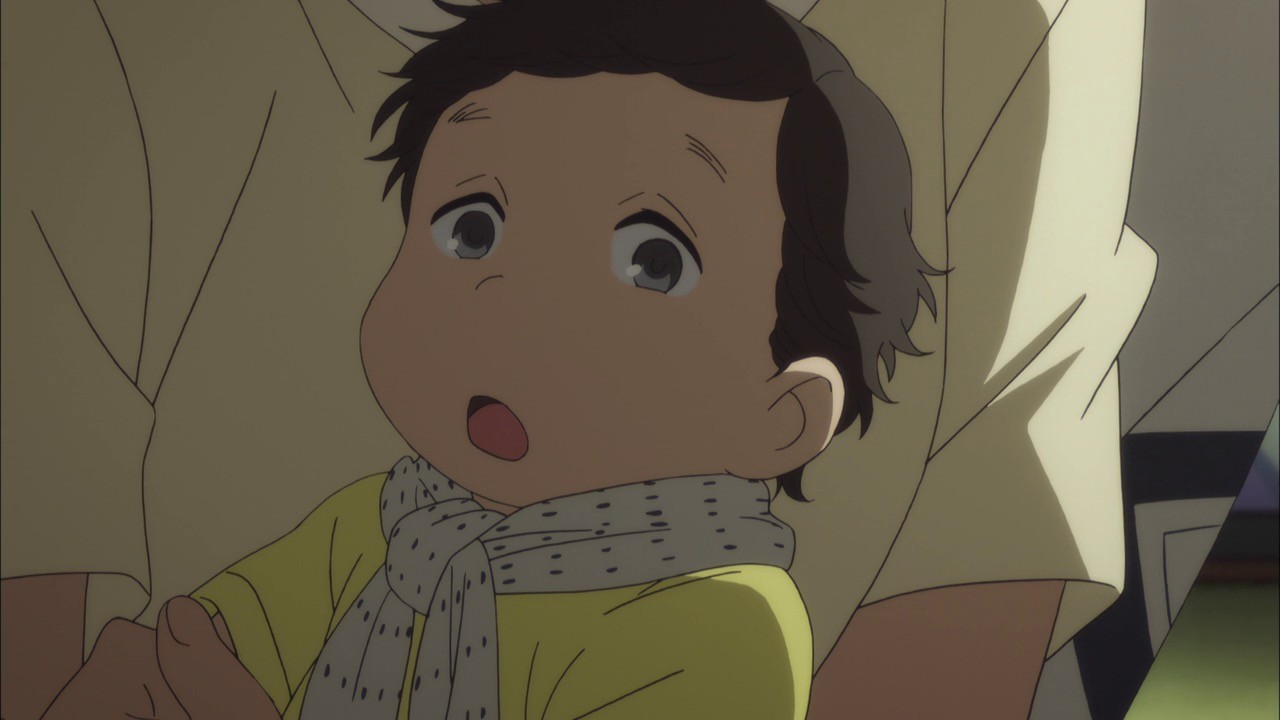
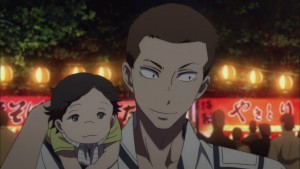
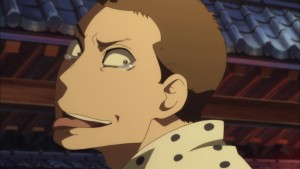
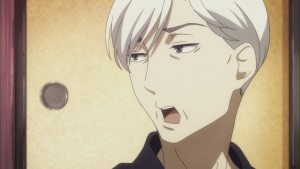
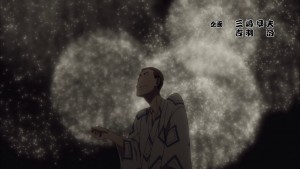
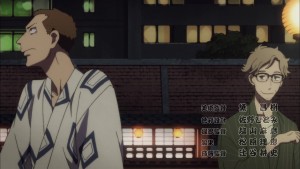
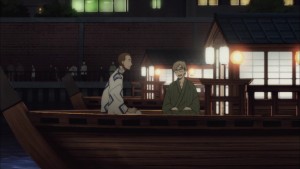
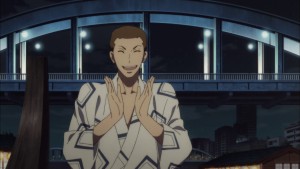
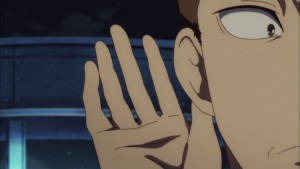
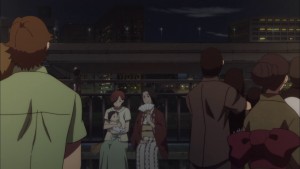
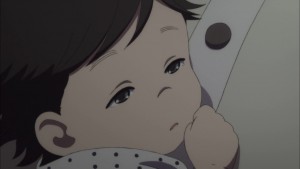
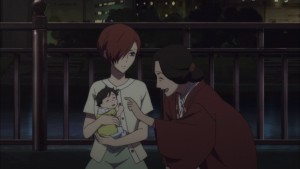
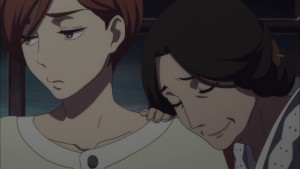
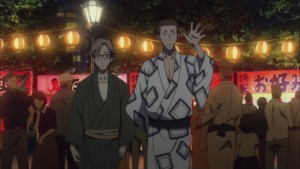
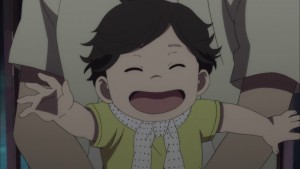
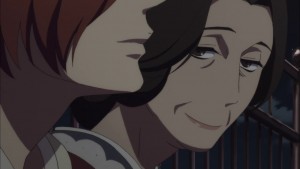
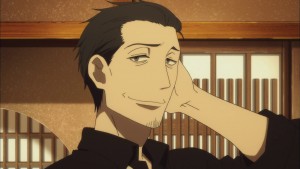
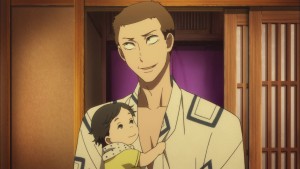
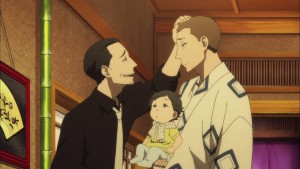

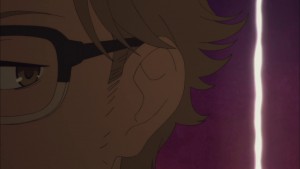
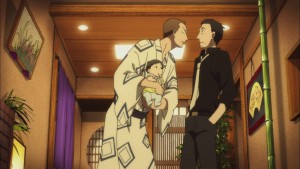
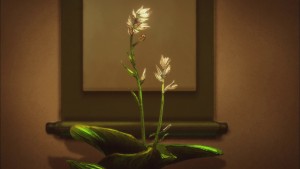
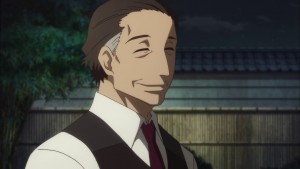
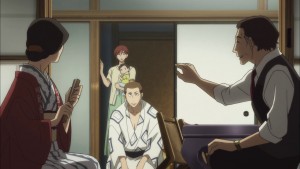
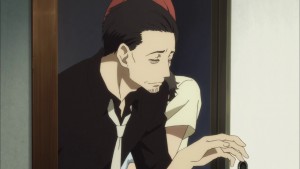
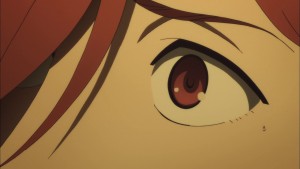
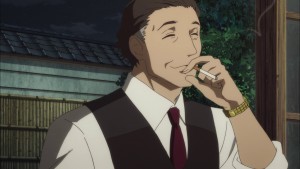
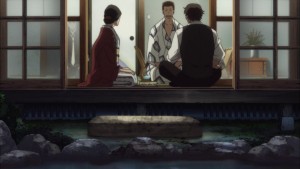
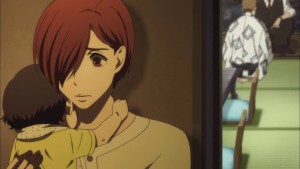
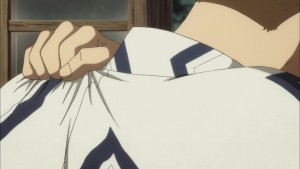
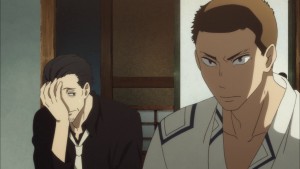
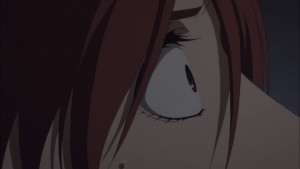
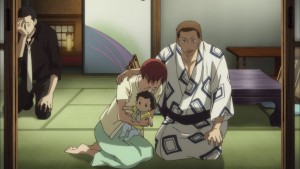
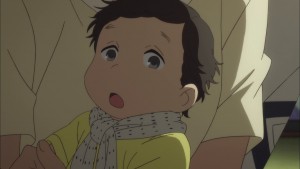
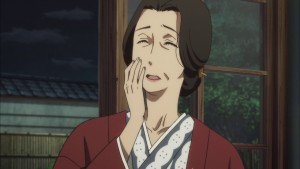
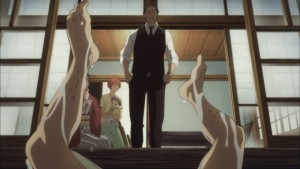
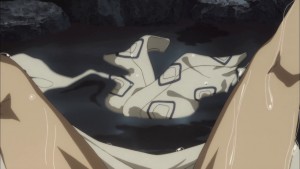
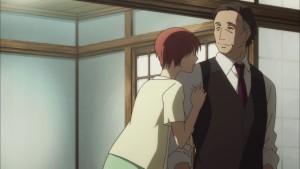
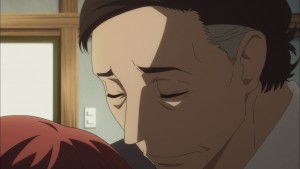
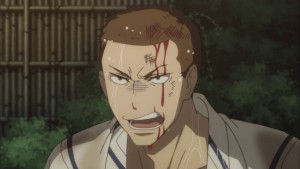
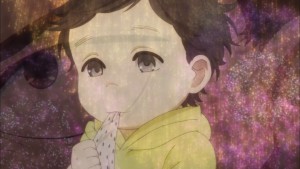
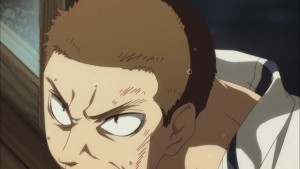
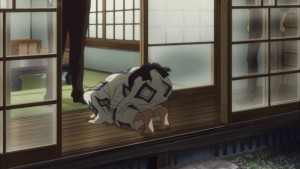
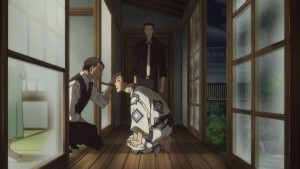
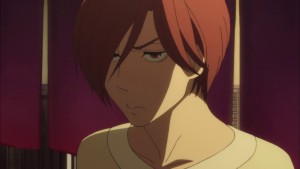
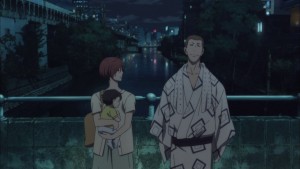
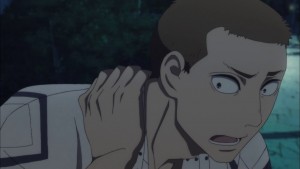
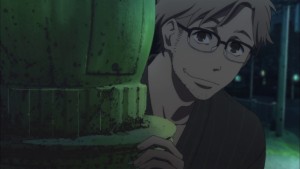
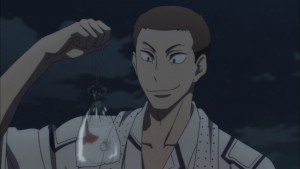
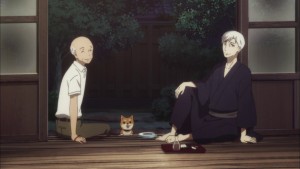
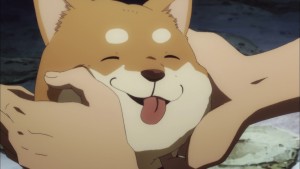
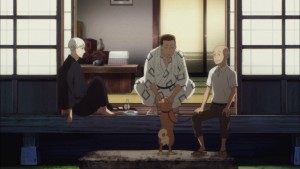
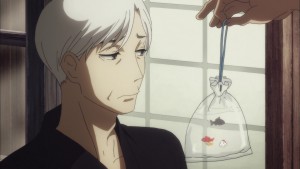
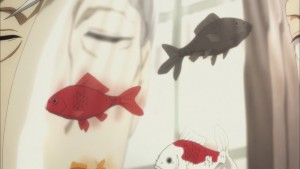
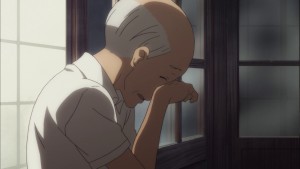
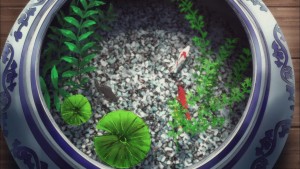
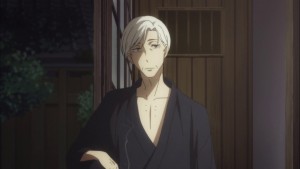
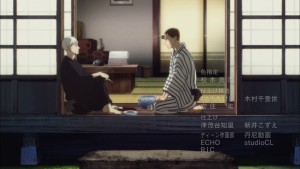
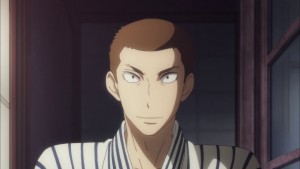
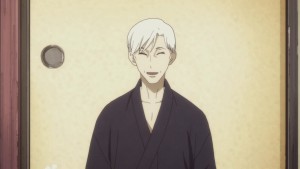
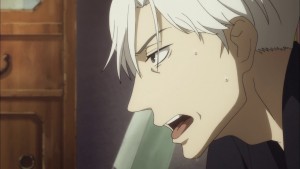
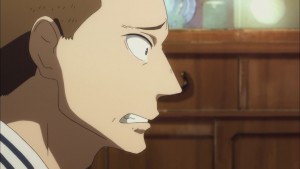
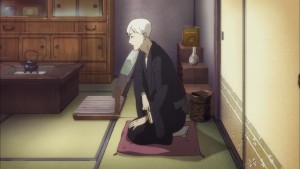
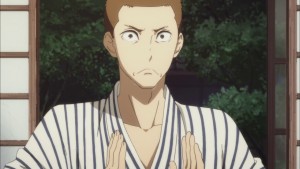
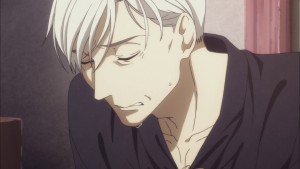
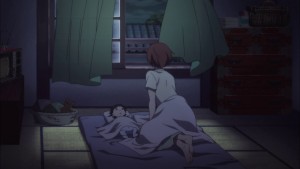
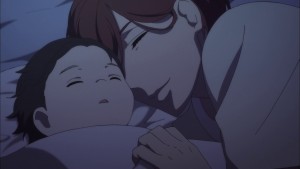
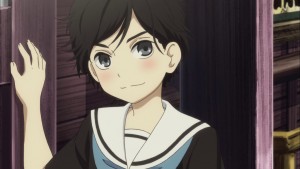
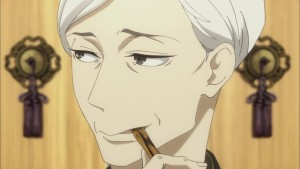
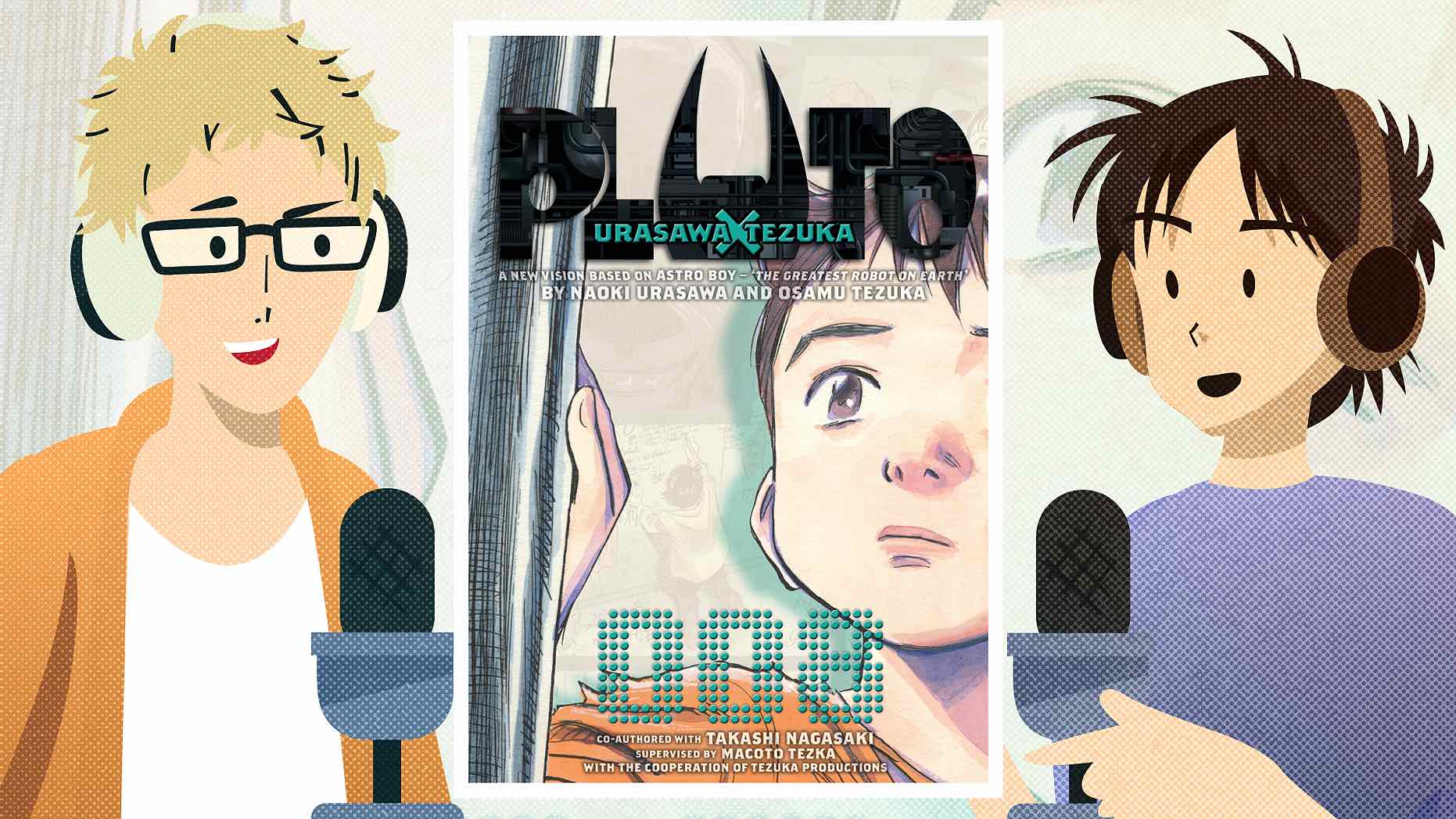
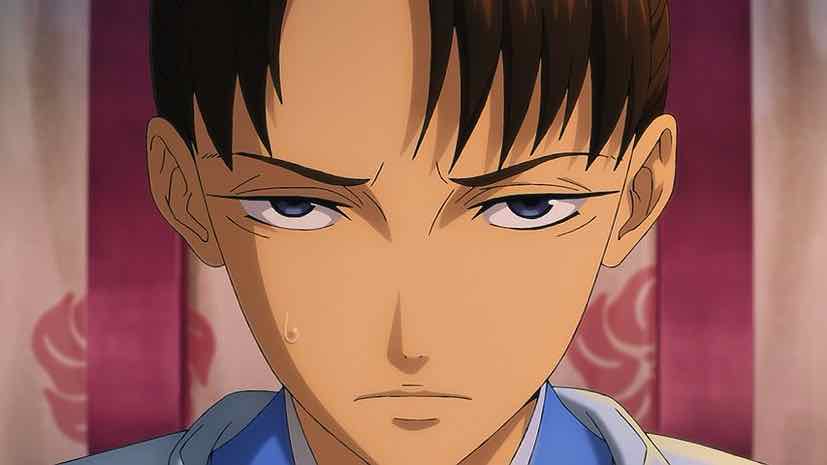
Terrestrious
January 20, 2017 at 10:18 pmHave you seen this yet (https://my.mixtape.moe/itsebe.mp4) (not sure if coding works on comments in here or not)? Found it on reddit, there’s no sound but I’m told by the last 30 secs the audio syncs up perfectly too.
Terrestrious
January 20, 2017 at 10:20 pmOh, the coding’s automatic. I feel dumb, lol.
Guardian Enzo
January 20, 2017 at 10:44 pmThat’s pretty cool.
roger p
January 26, 2017 at 3:41 pmTerrestrious, many thanks for this!
Yukie
January 20, 2017 at 11:02 pmI loved how this matsuri event was completely different from the matsuri episode in the first part of the series, but at the same time both were quite explosive for the characters involved.
I’m now following the manga while watching these episodes, and while the anime has had to cut off some stuff, I still think they did an excellent job, especially with the lighting and character movement.
AAOOII
January 21, 2017 at 3:55 amI’m done. I give up. All the awards to Haruko Kumota, Mamoru Hatakeyama, crew and cast… (Akira Ishida, damn, if there’s any justice in the world, he should win a seiyuu award for this role, if he hasn’t already; his performance is mesmerizing).
I’m not going to add anything discussion-worthy to your review of this episode, Enzo, with which I agree 100%. I just want to mention that I’m an anime fan of a certain age, and whenever the schedule rewards me with a drama of this caliber, with mature issues, starring grown-up characters, I thank the Anime Gods. As I grew older, of course my taste in anime changed and the number of series/movies I found appealing increasingly diminished. In this horrible Winter 2017 season, I am watching Onihei and Scum’s Wish for those reasons. The latter might star teenagers and seem to be heading to a tragedy/trainwreck of a conclusion (I wouldn’t know; I haven’t read the manga), but I got to admit that is is quite honest in the depiction of teen angst and how ill-equipped we were at that age to deal with unrequited love. If the characters seem unlikeable, selfish, hedonistic, quick to make bad decisions in the long term for the sake of a bit of relief in the short term… Well, I think at that age we were those characters. Sorry, half of my rant was off-topic, actually 🙂
Zilla
January 21, 2017 at 11:17 amThis series is SO FREAKIN GOOD.
dreamyklutz
January 21, 2017 at 3:34 pmI’ve always liked Yotaro, but always found Konatsu a more compelling and interesting character, she still is imho, but man, I loved, loved Yotaro in this episode. Who says genuine love and kindness and showing it, has no depth or isn’t strong and admirable? Also, you can never go wrong with featuring dogs.